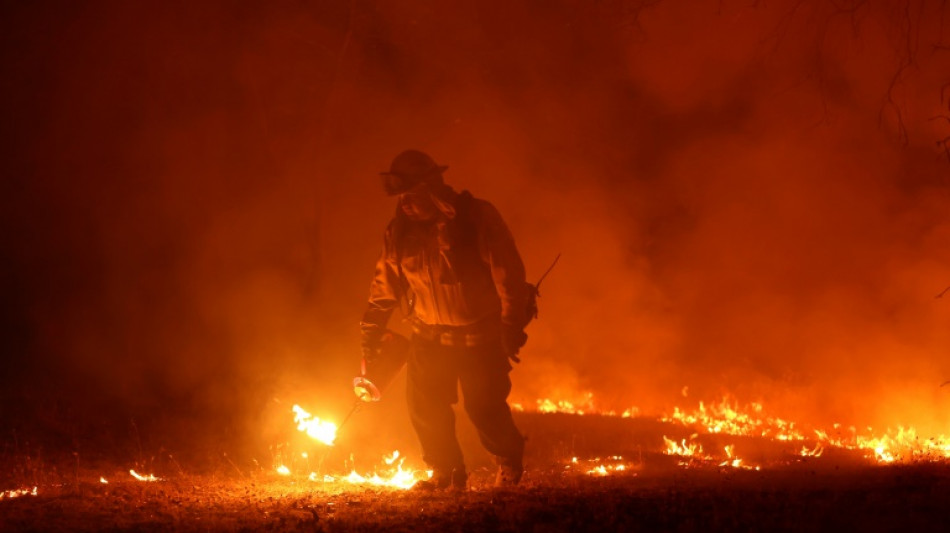
RBGPF
0.1000


Tens of millions of Americans already baking in a scorching heat wave braced Saturday for record-setting temperatures to climb, while a major fire ravaged part of California.
The country's central and northeast regions face the brunt of the extreme temperatures, which are not expected to peak until Sunday at the earliest and have sent public health officials scrambling.
More than a dozen states are under a heat advisory, with central US metropolitan areas such as Dallas and Oklahoma City expected to reach highs of over 100 degrees Fahrenheit (above 38 degrees Celsius) for at least the next five days.
A heat emergency is meanwhile in effect for cities up and down the northeast coast, from Boston to Philadelphia to Washington.
Not even the usually cool Pacific Northwest will escape the far-reaching heat, with the region expected to face several days in the 90s next week.
The high temperatures, which demonstrate the threat of global warming, have already caused an uptick in emergency calls for heat-related illness.
Cities have meanwhile been forced to open cooling stations and increase outreach to at-risk communities such as the homeless and those without access to air conditioning.
"This is really one of the things that we recognize in Oklahoma -- heat is the number one weather-related killer across the United States. It far surpasses any other" nature-related cause of death, Joseph Kralicek, director of the Tulsa Area Emergency Management Agency, told CNN.
Residents of the central US city were expecting temperatures to reach 103 degrees Fahrenheit Saturday and up to 106 degrees on Sunday and Monday.
The nation's capital was predicted to reach temperatures at or near 100 degrees Fahrenheit Saturday, with New York not far behind.
- Fire conditions increased -
"Look for daytime max temps to eclipse the century mark in the Central Plains and record breaking high temps from the Central Plains to the Northeast today," the National Weather Service said in a forecast.
"Sunday grows even hotter in the northeast," it said.
The sweltering heat has increased the risk of blazes, such as the major Oak Fire, which broke out Friday in California near Yosemite National Park where giant sequoias have already been threatened by fire in recent days.
Spread over more than 6,555 acres (2,650 hectares), the Oak Fire has already destroyed ten properties and damaged five others. As of midday Saturday, it was 0 percent contained, according to California's Department of Forestry and Fire Protection.
In recent years, California and other parts of the western United States have been ravaged by huge, hot and fast-moving wildfires, driven by years of drought and a warming climate.
Severe thunderstorms are meanwhile expected in the Midwest Saturday, with the potential for damaging winds, large hail and tornadoes, the NWS said.
Various regions of the globe have been hit by extreme heat waves in recent months, such as Western Europe in July and India in March to April, incidents that scientists say are an unmistakable sign of climate change.
N.Lo--ThChM